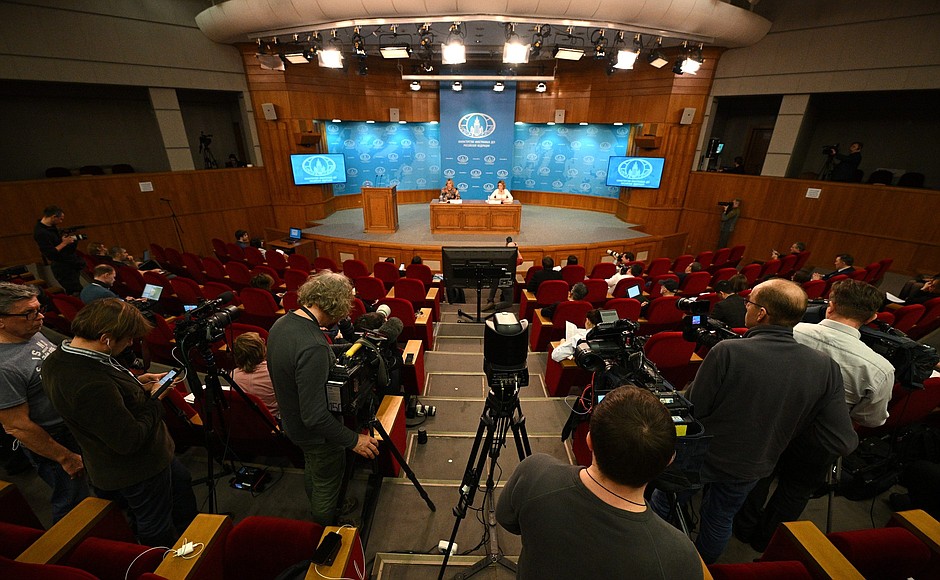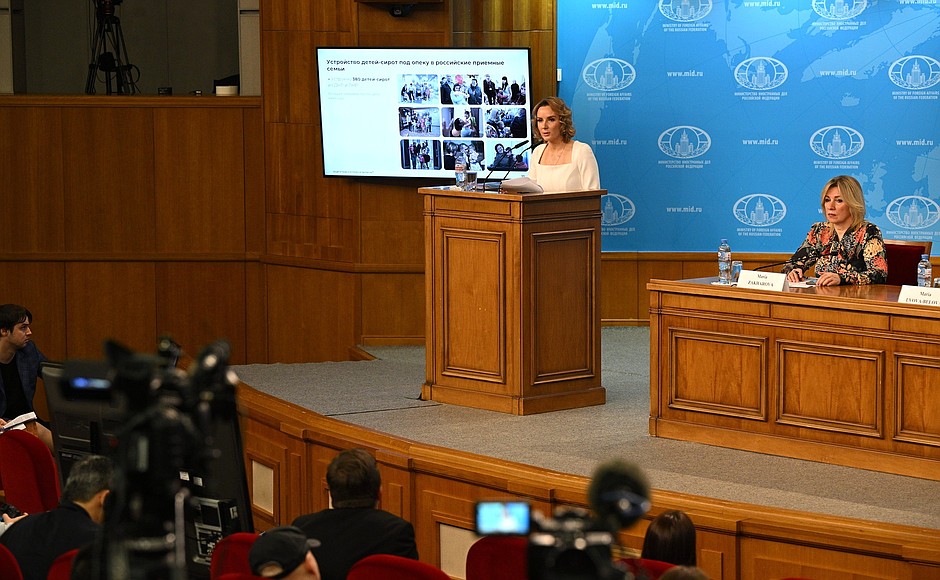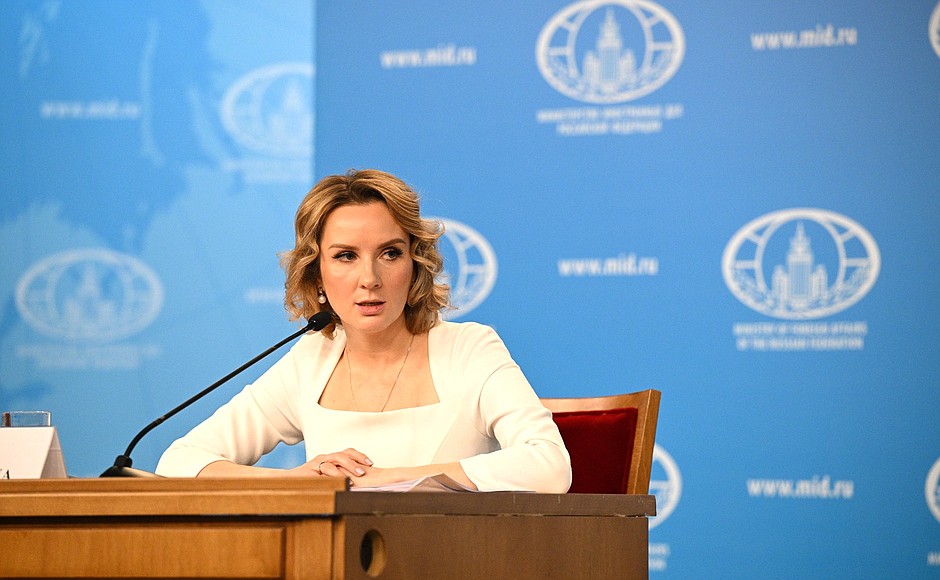Maria Lvova-Belova briefed journalists on the work done by the institution of the commissioners for children’s rights, which has been protecting the interests of Russian children for the last 25 years. There are children’s ombudsmen in 86 regions of the Russian Federation, including the Lugansk People’s Republic. This institution is being formed in the three other new regions. Last year, the Commissioner’s office followed up on 12,000 citizen appeals.
Orphaned children, children with disabilities and families facing hardship receive special attention. Between 2012 and 2022, the number of children in the federal orphan database fell from 120,790 to 37,831.
The Commissioner presented the institution’s strategic programmes – Children in the Family, Lifelong Support, Russia’s Teens and Country for the Children – aimed, among other things, at introducing new forms of social support for children.
She dwelled, in particular, on helping orphaned children from the new regions of the Russian Federation. Since February 2022, the Russian regions have received over five million refugees from Ukraine and the Donbass republics, with over 730,000 children arriving in Russia with their legal guardians, such as parents, guardians or custodians.
A group of children from social institutions, accompanied by their teachers and headmasters, has also arrived, based on the requests to this effect from the authorities of the Donetsk People’s Republic and the Lugansk People’s Republic.
In January 2023, the children’s ombudsmen staff started monitoring the return of over 2,000 children who had been sent to the Republic of Crimea and the Krasnodar Territory for rest and recreation in the summer and autumn of 2022 by the decision of their Ukrainian parents. Their return home was delayed on account of changes in the situation in the special military operation zone.
Nearly 400 children remained in recreation camps in January, when the Commissioner’s staff joined the effort to solve this problem. Their task was to find out what kind of help each of them needed. As of now, there are 16 children left; their parents are in the EU, and information about them has been passed on to the International Committee of the Red Cross.
Maria Lvova-Belova also described how they were working with families separated from their children by the hostilities. Her staff focus on each case and do their best to enable the children to reunite with their parents or relatives. Nine families were able to reunite, and 16 children were returned to their parents as a result of these efforts.
She also called for finding foster families in Russia for orphaned children from Donbass. According to her, this was the topic of most fake news and distorted information. She underscored that there was not a single case of children being separated from their birth families or relatives. In this connection, she warned against confusing the terms “adoption” and “guardianship,” explaining that 380 orphaned children had been placed precisely under guardianship.
She pointed out Ukraine’s persecution of Russian families and orphaned children from Donbass, who had been taken under their care, as well as Russian specialists involved in providing humanitarian assistance to children in Russia’s new regions. They are receiving threats, and their personal information is posted online.
According to Ms Lvova-Belova, numerous media fakes concern children’s rest and recreation. It is alleged that children are compelled by force to travel to “secret camps” for re-education. Foreign Ministry Spokeswoman Maria Zakharova remarked that the efforts by the Russian institution of the commissioners for children’s rights received misleading coverage and were presented to the international community in a distorted light.
Ms Lvova-Belova added that a special online bulletin entitled Work by Presidential Commissioner for Children’s Rights of the Russian Federation Maria Lvova-Belova to Protect Children during the Special Military Operation was created and posted on her official website. The document will be updated as new materials come in, and it will soon be translated into a number of foreign languages.
In conclusion, the Commissioner urged citizens of Ukraine whose children might have turned up on Russian territory to get in contact via email at obr@deti.gov.ru.



